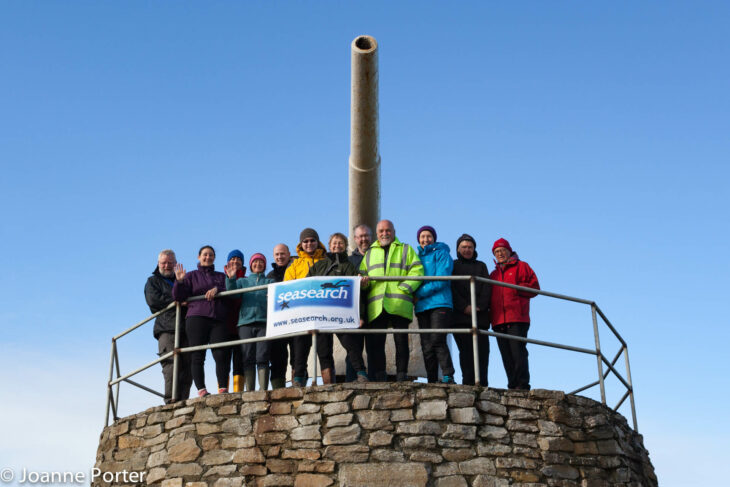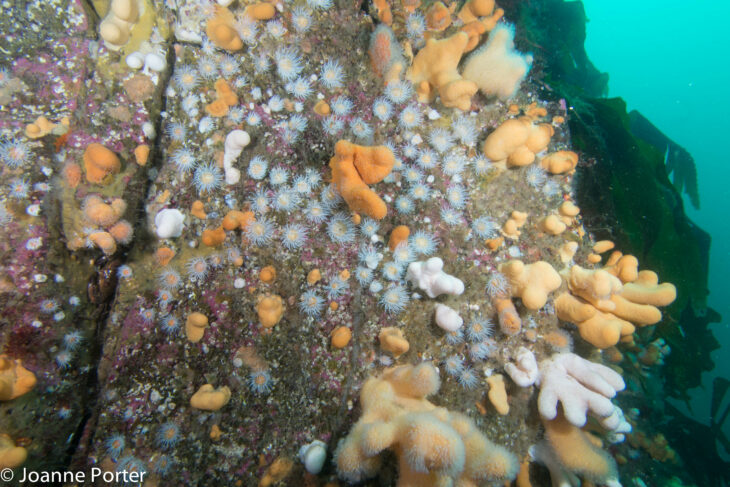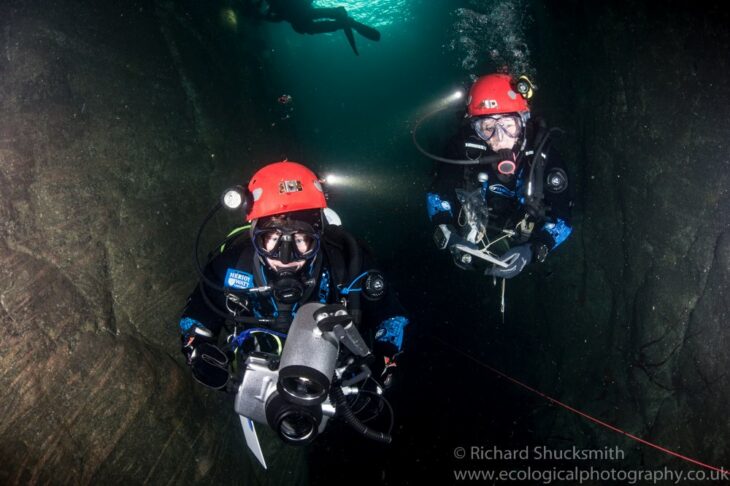Blog written by Dr Joanne Porter, Associate Professor, Heriot Watt University.
I have been a user of biological data from the marine environment since my early days as a PhD student at Swansea University. During my time there I undertook hundreds of rocky shore surveys, as I documented the distribution of species of marine Bryozoa around the coast of the UK with my supervisor Professor John Ryland.
Diving deep for records
It was also during my time at Swansea that I learned how to SCUBA dive, through the University British Sub Aqua Club branch. It wasn’t long after I got my qualification as Sports Diver that I completed a Seasearch citizen science marine-life recording course to become an Observer and eventually a Surveyor for that scheme.
Seasearch volunteers have made over 600,000 underwater records available on the NBN Atlas
Twenty years later I find myself having written a marine life ID book for Seasearch and am a specialist tutor for Bryozoa, delivering workshops in different places around the country, to enable other enthusiasts to improve their knowledge and contribute to the collection of records.
I have also moved deeper into underwater recording as an academic and routinely use SCUBA in my research work, to carry our experimental work on the seabed and to record benthic communities in a number of different ways. I involve my students in these underwater surveys and I also train students in the skills required to successfully collect biological data underwater.
Such records are hard earned, especially in the colder waters of northern Scotland where conditions can be difficult to operate at times.
Maximising our efforts
It is so important that we share the knowledge gathered from these environments, and that we make it accessible and easy for others to use.
The SBIF Review looks in detail at how we can do just this. The Review sets out how we can make the process of data collection, curation and accessibility, from start to finish, easier to engage with and, through the consultation process, has captured the full depth and breadth of work being done across many sectors.
The aspiration of open biological data in Scotland is a laudible one; it will confer many advantages when implemented, not least maximising the impact of our recording efforts, both above water and below.
For now, it is time to look at the benefits of realising the SBIF Review recommendations, in particular the impact they will have on future generations in supporting them to protect and value our natural world. This is especially timely against the backdrop of climate change, and its implications for changes in natural biodiversity, and in turn the ecosystem services it provides, that we all as a society rely upon.



